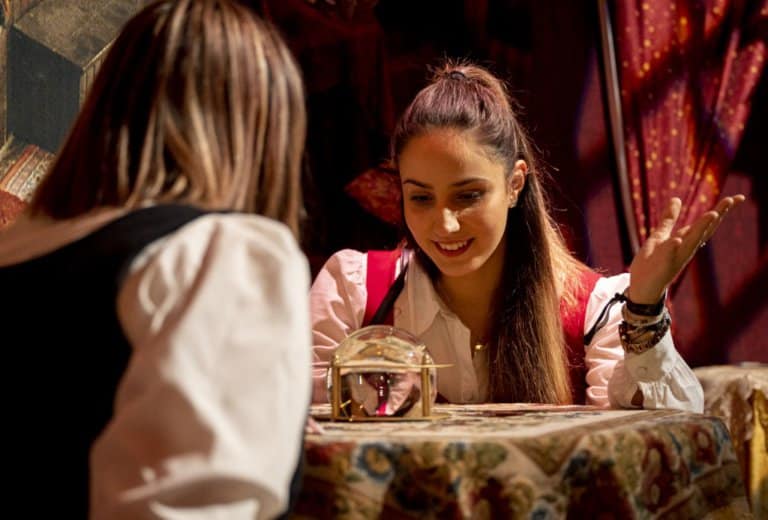
If you are a Harry Potter fan, you would know two things: JK Rowling and Hogwarts Legacy.
The newest Harry Potter game, “Hogwarts Legacy,” launched on PC, PS5, and Xbox Series X, allows players to live out their wizarding world experience.
It lets you experience life as a student at Hogwarts School of Witchcraft and Wizardry in an open-world, single-player, action role-playing video game (RPG) set in the 1800s.
Players also get the chance to learn subjects from the original books like Defence Against the Dark Arts, Charms, Herbology and Transfiguration.
All good and fun — but the game’s saddled with controversy, one surrounding Rowling and her recent opinions.
What’s going on?

An early instance of Rowling (pictured on the top right) facing allegations of transphobia came in March 2018 when she was slammed for “liking” a tweet that referred to trans women as “men in dresses.” Source: Timothy A. Clary/AFP
J.K. Rowling’s stance on transphobia
Rowling has faced intense backlash from her tweets about transgender people.
Vox reports that the “Harry Potter” author isn’tisn’t shy about maintaining her views on trans-exclusionary radical feminism (short for TERFism), which argues that trans women are men who seek to invade women-only spaces and oppress them further.
In 2020, she criticised an opinion piece published by the website Devex, a media platform for the global development community that used the phrase “people who menstruate,” on her personal Twitter account.
‘People who menstruate.’ I’m sure there used to be a word for those people. Someone help me out. Wumben? Wimpund? Woomud?
Opinion: Creating a more equal post-COVID-19 world for people who menstruate https://t.co/cVpZxG7gaA
— J.K. Rowling (@jk_rowling) June 6, 2020
Shortly after, the best-selling British author would continue with another thread talking about the concept of biological sex.
Warner Bros. has clarified in an FAQ post on the game’s website that J.K. Rowling was not involved in creating the game.
Rowling’s creative agency, the Blair Partnership, did “work with the developers on creative decisions throughout the project,” according to Bloomberg.
Sirona Ryan, a character in the game, has also attracted online reactions. Her name — which begins with “sir” — mirrors Rowling’s stereotypical naming conventions.
“It feels like a lot of this [discourse] is manufactured, because there’s a lot of right-wing TERFs who are like, ‘Wow, look how good this [game] is selling, sticking it to trans people!’ Which is, of course, provoking trans people. It’s just so obviously targeted culture war discourse,” @JUNlPER, a podcaster and prominent trans Twitter user shares in an interview with Vox.

The “Mortal Kombat” franchise is renowned for its violent finishing moves. Source: Robyn Beck/AFP
Other examples of when video games went too far
Let’s analyse two popular video game franchises: Mortal Kombat and Tomb Raider.
Tomb Raider
Remember how Lara Croft looked when she first appeared in “Tomb Raider”?
Her “polygonal breasts” and breathy voice made it easy for fans to associate her with a long cultural tradition of science-fiction female robots.
Luckily, later games in the franchise — and live actions adaptations — have departed from this concept.
Mortal Kombat
Those familiar with the “Mortal Kombat” franchise would recognise iconic phrases such as “Finish Him” or “Fatality” — often referring to the finishing moves which allow players to kill or deal severe injuries to an opponent.
With the word “Kombat,” it’s not surprising that the franchise embraces its unrestrained graphic and bloody violence.
It turns out that the game was too violent — so much so that it became one of the key video games leading to the 1993 US Senate hearing on video game violence.
This led to the creation of the Entertainment Software Rating Board, a self-regulatory organisation that assigns age and content ratings.
How a minor in Gender Studies can help you become a better game developer
As the name suggests, Gender Studies focuses on how gender identity and sexual orientation shape behaviours and feelings.
This academic discipline also investigates the causes of sex-based discrimination and harassment.
Understanding these nuances can help game developers navigate different social issues — even allowing them to tap into more interesting stories that relate to a niche audience, such as the lesbian, gay, bisexual, transgender, intersex, queer/questioning, and asexual community.










